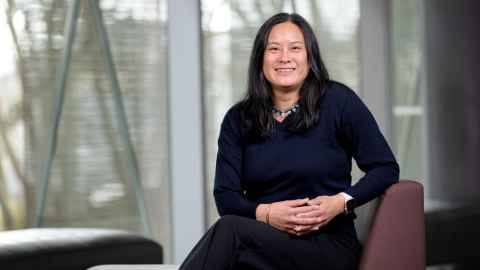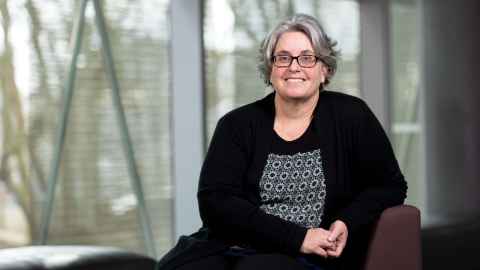Help for neurodiverse learners on campus
1 March 2024
It's an exciting time of the year for thousands of students. But some may face hurdles to learning. Help is on hand.

As thousands of enthusiastic students descended on Waipapa Taumata Rau in February, among them were those who could face challenges beyond deciding what to buy at Munchy Mart.
They’re bright and keen, but students who process information in diverse ways sometimes have to work a bit harder to achieve their goals.
The University of Auckland’s Inclusive Learning team is geared up to help students who require support. They may have been diagnosed with conditions such as attention deficit hyperactivity disorder (ADHD), autism spectrum (AS), dyslexia or dyscalculia (a learning disorder that affects the ability to do maths), among others. They may also have chronic fatigue or other conditions that impact their attention and concentration.
Inclusive Learning advisers Glenis Wong-Toi and Dulcie Brake support neurodivergent students to be academically successful and to maintain their well-being while they’re at Waipapa Taumata Rau.
“We see students from when they first start right through to doctoral level,” says Glenis, who advises it’s preferable for students to access support early if possible.
She says students may get in touch with the Inclusive Learning Team before or during their degree. The level of assistance they receive depends on whether there has been an official diagnosis. In 2023, the team received more than 580 student referrals.

Glenis and Dulcie say it’s good that teaching staff are becoming more aware of neurodivergent thinkers, but they can only help if advised by the students of their situation.
To encourage that, they suggest lecturers foster an environment where students feel like they could make them aware of their condition early – not a few weeks after an assignment is due.
“It’s vital to create trust and show them you’re willing to work with neurodivergent students.”
Lecturers could say something like, ‘I understand everybody works differently. If you have a different way of learning and you’d like to discuss that with me, please make sure you do.’
“Teaching staff who are responsive to student needs can have a positive impact on that student in terms of their confidence in their ability to succeed,” says Dulcie.
“It has been really encouraging to hear from students that their lecturers have responded positively to their request for support.”
The Inclusive Learning advisers can help students with workload management and organisation, academic reading and writing, and even note-taking for study. There is also a lot of digital technology that can help with learning challenges.
Campus Care and Assessment Services can also assist with modifications to the physical environment neurodivergent students use for tests, including adjustments to lighting and noise levels.
Glenis and Dulcie say that students sometimes find the move from a prescribed timetable at school to University challenging, but the flipside is they are taking subjects they prefer and in which they are genuinely interested.
They say it’s important not to assume it will be a struggle for all, but to let them know there’s a place they can turn to for assistance if they need it.
Dulcie adds: “Sometimes just acknowledging the challenges can be helpful, but with support and help, students can develop the academic skills they need to be successful at university.”
This story first appeared in March 2024 UniNews.